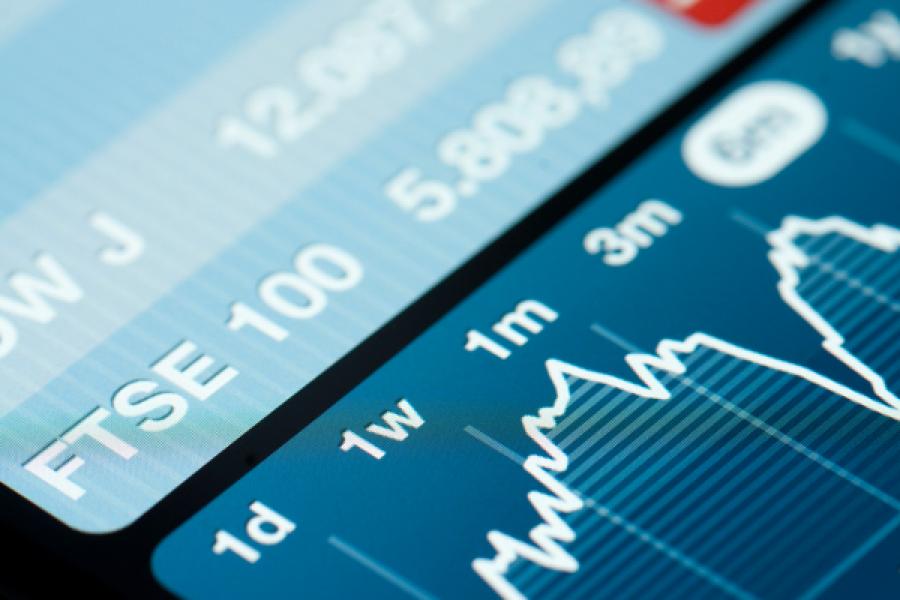Brexit bargain? One in four FTSE 100 shares yielding over 6%
The blue-chip stock index is on track to provide investors with a healthy 4.8% yield in 2019.
21st October 2019 09:32
by Tom Bailey from interactive investor
The blue-chip stock index is on track to provide investors with a healthy 4.8% yield in 2019.

A quarter of the FTSE 100 stocks are forecast to yield 6% or more, according to the latest figures provided by AJ Bell.
Taken as the whole, the blue-chip stock index is on track to provide investors with a healthy 4.8% yield in 2019. A total of 26 companies in the index, however, are expected to yield even higher at 6%.
The high yields reflect the unloved nature of the UK stockmarket, due to Brexit uncertainty, with many investors sitting on the sidelines and adopting a wait and see approach until there is more, or indeed, any clarity on the shape and form of Britain’s future relationship with the European Union.
A total of seven shares are expected to yield over 8%, and four companies above 10%.
UK stocks in the FTSE 100 are now on track to payout a new all-time high of £92.6 billion. In addition, overall dividends for the UK market are expected to hit a record high in 2019. (ADD LINK)
According to Russ Mould, investment director at AJ Bell: “A combination of recent share price weakness and unchanged forecast dividend payments means there are some very attractive looking dividend yields on offer from the largest companies on the UK stock market.
“Such a fat yield from the UK’s blue-chip index looks extremely tempting compared to the Bank of England’s 0.75% base rate for cash and the UK ten-year gilt, where the yield has retreated from 1.26% at the start of the year to just 0.45%.”
However, while attractive on paper, the generous yields could be storing up future problems for UK companies. Mould warns: “Management must be careful that they are not over-paying and under-investing to curry short-term favour to the long-term detriment of their competitive position and therefore ability to generate cash and offer dividends.”
At the same time, Mould warns that many of the highest yields on certain shares may be reflective of increased investor scepticism. The yield of a company is what percentage of the share price dividend payments represent. Therefore, yields can rise for two reasons: a increase in dividend payments or a fall in the company’s share price, assuming there has been no cut to the dividend figure.
In the case of the three housebuilders in the top 10 highest yielders, Mould warns that their yields are partly the result of their strong shareholder remuneration policy. But at the same time, he notes: “It may also hint at investor scepticism that the industry can maintain its current lofty levels of profitability without the benefit of Government assistance, via the Help to Buy and Lifetime Isa schemes.”
Meanwhile, tobacco companies Imperial Brands and British American Tobacco have high yields due to a fall in their share prices (partly the result of the vaping health scare), as well as increased dividend payments.
| 2019 forecast | ||
|---|---|---|
| dividend yield (%) | ||
| 1 | Evraz | 15.3% |
| 2 | Taylor Wimpey | 11.9% |
| 3 | Persimmon | 11.5% |
| 4 | Imperial Brands | 11.1% |
| 5 | BT | 8.5% |
| 6 | Aviva | 8.3% |
| 7 | Standard Life Aberdeen | 8.1% |
| 8 | Rio Tinto | 7.8% |
| 9 | Barratt Developments | 7.5% |
| 10 | British American Tobacco | 7.5% |
| 11 | Legal and General | 7.5% |
| 12 | Centrica | 7.2% |
| 13 | Phoenix Group | 7.1% |
| 14 | Royal Bank of Scotland | 6.9% |
| 15 | HSBC | 6.9% |
| 16 | BP | 6.7% |
| 17 | Royal Dutch Shell | 6.6% |
| 18 | Lloyds | 6.6% |
| 19 | BHP Group | 6.6% |
| 20 | ITV | 6.5% |
| 21 | SSE | 6.4% |
| 22 | Glencore | 6.3% |
| 23 | WPP | 6.3% |
| 24 | Barclays | 6.1% |
| 25 | Admiral Group | 6.1% |
| 26 | International Cons. Airlines | 6.0% |
| Average | 7.8% |
This article was originally published in our sister magazine Money Observer, which ceased publication in August 2020.
These articles are provided for information purposes only. Occasionally, an opinion about whether to buy or sell a specific investment may be provided by third parties. The content is not intended to be a personal recommendation to buy or sell any financial instrument or product, or to adopt any investment strategy as it is not provided based on an assessment of your investing knowledge and experience, your financial situation or your investment objectives. The value of your investments, and the income derived from them, may go down as well as up. You may not get back all the money that you invest. The investments referred to in this article may not be suitable for all investors, and if in doubt, an investor should seek advice from a qualified investment adviser.
Full performance can be found on the company or index summary page on the interactive investor website. Simply click on the company's or index name highlighted in the article.